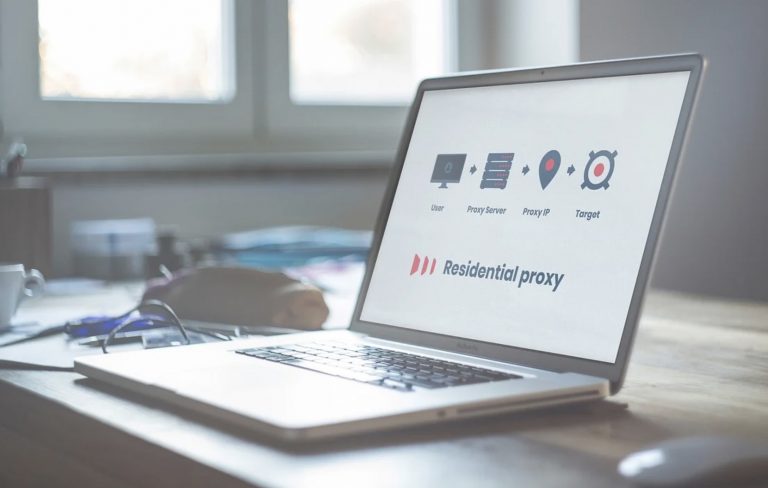While web scraping is not necessarily illegal, uncontrolled web scraper bots on your website can cause various negative impacts. A high volume of requests from the web scraping bots, for example, can significantly slow down your website and ruin your visitor’s user experience. Also, criminals can use the data or content extracted from the web scraping activities for malicious means, which might be illegal.
This is why web scraping protection is very important for any websites and businesses that are serious about their data security. However, it can be easier said than done.
The biggest challenge of web scraper protection is that we have to find the balance between blocking or rate-limiting malicious web scraping bots and optimizing the user experience of legitimate users while also allowing good web scrapers (i.e. Googlebot) to access the site.
Here, we will discuss how.
What Is Web Scraping?
Web scraping, in a nutshell, is when a program of software extracts data from a website. There are several different types of web scraping software (web scarping bots) with different modus operandi:
- HTML scrapers, for example, Jsoup, extract data from your web pages by parsing and detecting patterns in your HTML codes.
- Web spiders, such as Googlebot, visit your website then follow links to other pages while parsing data. Spiders are often used for getting specific data together with HTML scrapers.
- Using common Unix tools like Grep, Wget, or Curl to download pages, the simplest form of web scraper and the easiest to protect against.
There are, in fact, professional web scraping services like ScrapingHub that is a team of professionals who will figure out how to professionally scrape your site and extract your data for others. They often employes the best technologies and can be very hard to detect and prevent.
What Can Be Stolen In Web Scraping?
Web scraping bots can technically scrape anything publicly posted on a website: text, images, videos, CSS code, HTML code, and so on. Remember that we’ve published these assets publicly, and the web scraper essentially only performs copy-and-paste in rapid succession. This is why this type of web scraping is perfectly legal.
However, the attacker can use this scraped data for a variety of malicious purposes, and advanced web scrapers can extract confidential data you didn’t mean to publish, which can be illegal.
Here are some negative and potentially illegal impacts that can be caused by web scraping:
- Duplicate content: after your content has been scraped, the attacker can repost your content on another website, creating duplicate content issues that might hinder your site’s SEO performance. Also, the other website might steal your traffic.
- Personal information scraping: your website might contain confidential data like customer’s email address and phone number. If this data isn’t properly protected, then web scraping bots can scrape this data to use it for malicious means or sell it to others.
- Price scraping: a very common attack in eCommerce sites where the lower price is the main competitive advantage (i.e. ticketing sites). The web scraper can extract pricing data and inform your competitors (or, the competitor is the one operating the web scraping bot) so they can undercut your price.
How Can Companies Protect Against Web Scraping?
The main principle of web scraping is to make it as difficult as possible for the web scraping bots to extract your data while maintaining user experience and ensuring good bots can still access and crawl your site.
There are several different methods we can use in performing web scraping protection, but here are the most common ones;
1. Deploying bot management solution
The most effective way to protect your website from web scraping is to deploy an advanced bot management solution that can use AI and machine learning technologies to detect the presence of bots and prevent and protect web crawling and scraping activities in real-time.
Today’s scraper bots can use advanced technologies (including AI) to pretend to be web browsers while also impersonating behaviors of legitimate human users like non-linear mouse movements. Thus, relying on a basic bot mitigation solution might not be sufficient in protecting your site from sophisticated web scrapers.
2. Rate limiting
A basic approach to protecting your website from web scraping attacks is to rate-limit the maximum number of requests of a particular client and IP address.
Web scraping bots can make requests much faster than human users, but they require resources in doing so. In fact, operating or hiring a web scraping bot can be very expensive, and rate-limiting might discourage the bot operators to move to different targets.
3. Challenge the bot
Another basic but useful technique in slowing down web scraping bots is to challenge the client, for example with CAPTCHA. These challenges are designed to be very difficult to solve by bots, but fairly easy to solve by legitimate human users. Thus, it can be effective in blocking web scrapers from extracting your data.
However, not only using too many CAPTCHAs can ruin your site’s user experience, but the presence of CAPTCHA farm services in recent years has also hindered the effectiveness of challenge-based approaches of web scraping protection.
Conclusion
The only perfect way to protect your website from web scraping is to not publish any content at all on your website. However, this is certainly not viable, and this is why a proper web scraping protection strategy is required. While there’s no one-size-fits-all approach that can 100% protect your website from web scraping, using an advanced bot management solution like DataDome is the most effective option we have at the moment that can help our website block access from web scraping bots almost completely.


0 Comments